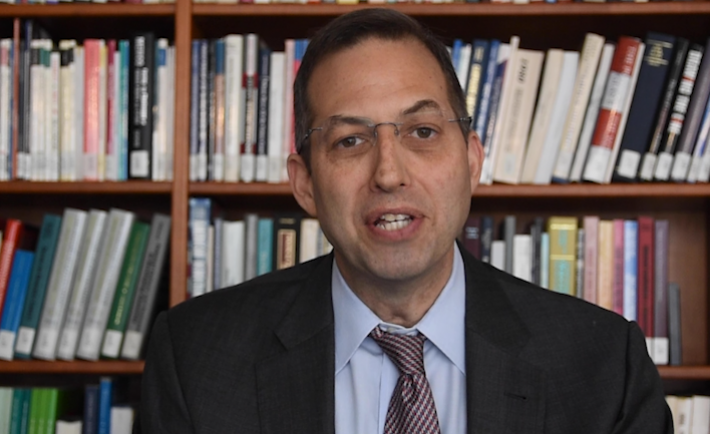Recent images of hundreds of thousands of citizens marching peacefullythrough Algerian streets demanding the resignation of their autocratic ruler offer an unmistakable and powerful analog to the 2011 Arab uprisings. The ailing and out-of-touch 82-year-old Algerian leader Abdelaziz Bouteflika seeking a fifth presidential term in a country where 70 percent of the population is under age 30 brings to mind an oblivious Hosni Mubarak tragically misreading the seriousness of the first gatherings against him in Tahrir Square. Like Mubarak, who first tried to placate young Egyptians by promising to step down “later,” Bouteflika’s advisors beggar belief by claiming that their man—rarely seen in public over the past five years—will step down after he is “reelected” yet again.
Not Over Yet: Latest Wave of Middle East Protests A Reminder of 2011’s Unmet Demands
Young Voices, Old Problems: The Case of North Macedonia
The End of Pessimism? Democracy Makes a Resurgence
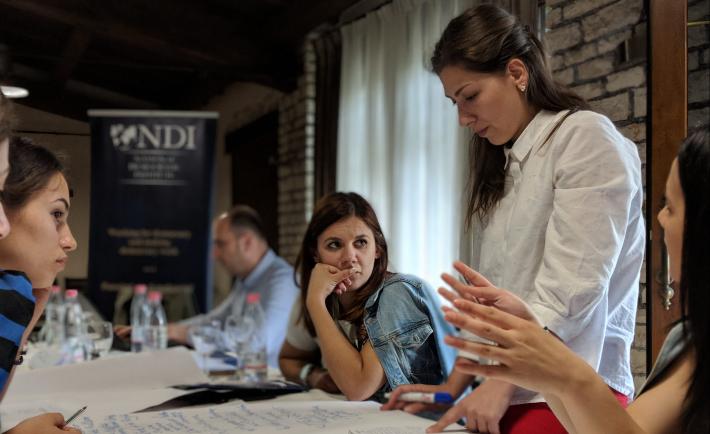
Youth from Albania develop action plans to address issues in their local communities during an NDI skills-building workshop in Durres on June 29, 2018. Credit: Dana Radojevic
It is easy to get lost in the details of one’s work. This happens in every field ranging from the neverending rounds made by a nurse to the countless strokes of an artist’s paintbrush. Supporting democracy and good governance is no different – thousands of dedicated activists across the world spend their days, nights and weekends lost in paperwork, meetings and strategy sessions, working to create a more inclusive, just and democratic world.
Best DemWorks Posts of 2018
NDI’s staff in DC, Silicon Valley, and 50+ offices around the world represent a deep repository of expertise and practical experience in the areas of democracy and international affairs. We promise to keep bringing you their insights and analysis through this platform, and to increasingly include the voices expert guest bloggers from our partner organizations. Here’s the list of DemWorks’ most read blog posts from 2018.
Happy Holidays: A Look Back at 2018
As 2018 draws to a close, I want to express my gratitude for your support in my transition back to NDI as its president – a true homecoming. Democracy faces serious challenges with the rise of new technologies and the resurgence of authoritarianism. While some may fall into fatalism, that is not NDI's way, and it is unworthy of those who have fought for freedom and democracy over many decades. NDI will continue to meet this moment head-on with innovative approaches that maximize potential opportunities as well as mitigate challenges, just as we did throughout 2018.
The work of democracy is never “over”
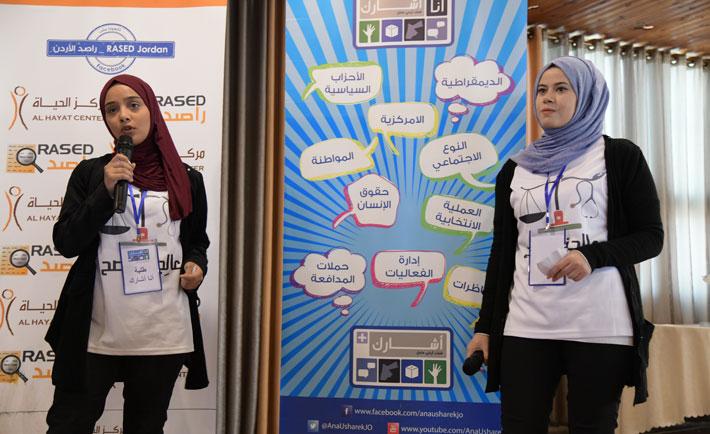
As part of a series of events organized by NDI’s Jordan youth political participation program Ana Usharek and the Al-Hayat Center for Civil Society Development – NDI’s local partner – 60 Ana Usharek students participated in a networking and coalition-building event on December 5 with 43 local civil society organizations in Zarqa, Jordan. Photo Credit: NDI Jordan
It is important to remember the task of safeguarding democracy at home, and encouraging and supporting democracy abroad is an unending one. There is no such thing as a fully consolidated democracy. Various shocks and strains, whether internal or exogenous, will constantly test the resilience of democratic institutions. Likewise, there is no such thing as a “graduated” emerging democracy.
The Success of Nigeria's Inaugural Braille Ballot Guides
In advocating for strong democratic institutions around the world, it is easy to overlook the rich diversity of democratic traditions across nations. In the United States, presidential hopefuls descend on Iowa every four years to grill steaks for eager caucus-goers. In London, commuters tune to BBC Radio to hear the prime minister and opposition leader spar on issues of the day. And in Nigeria, voters press their thumbs into ink pads, locate the name and party of their chosen candidate, and leave a thumbprint to mark their democratic choice.
A Force Multiplier for Democracy in the Digital Age
In countries and communities around the world, defenders of democracy are working to understand and respond to the ways that technology is impacting political and electoral processes. With every election or political event, democracy’s defenders are capturing new lessons on how democracy can weather evolving threats and even thrive in the digital age. Despite this growing body of projects and the commitment of local actors in countries around the world, responses to evolving digital challenges to date often lack coordination. But both globally and regionally, key democracy stakeholders haven’t had a proper channel for information-sharing, research coordination, and advancing shared priorities at the intersection of tech and democracy. So we’re building one, as a community.
Making Democracy Popular: Corruption, Populism & Brazil

Brazilians take to the streets to protest rampant government corruption on March 13, 2016. Photo by Agencia Brazil (CC BY 3.0 BR)
What do Mexico’s Andrés Manuel López Obrador, Hungary’s Viktor Orbán, the Philippines’ Rodrigo Duterte and Venezuela’s Hugo Chávez have in common? They’ve all been branded as populists, both celebratorily and scathingly. As Brazil heads to elections on October 7, all eyes are on ultra-conservative candidate Jair Bolsonaro – who brazenly rejects political correctness, defends Brazil’s authoritarian past and promises to upend the establishment – as the latest in a line of political strongmen turning citizen malaise into electoral success. Charismatic populist leaders present society as divided into two separate and homogeneous entities: the corrupt elite, and the pure people who the corrupt have oppressed. Proclaiming their direct link to the people (often enabled by social networks), they tend to eschew representative institutions and checks and balances. While left-wing populists take a class-based approach pitting working and middle-class people against a greedy economic elite, right-wing populists typically define the people as an exclusive group along ethnic, racial or national lines.
My first Democracy Day as NDI president
On September 4, I became NDI's third president. I do so with humility, at a time when democracy around the world faces its most serious challenge in memory. While the United Nations' theme for this year's International Day of Democracy is "democracy under strain," let us honor the day not just by reflecting on challenges but also how far we’ve come.


_1.jpg)
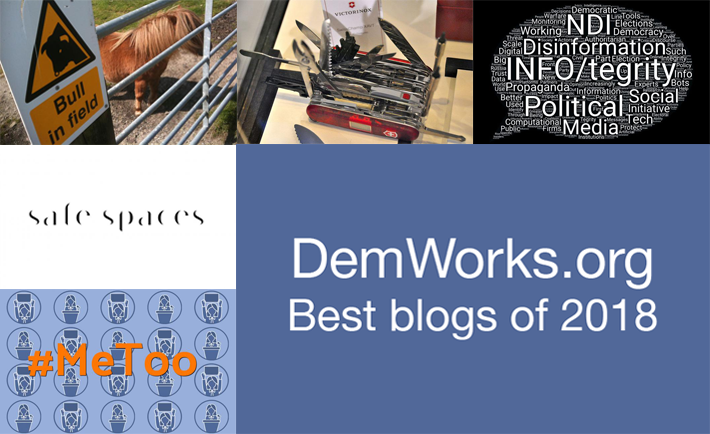

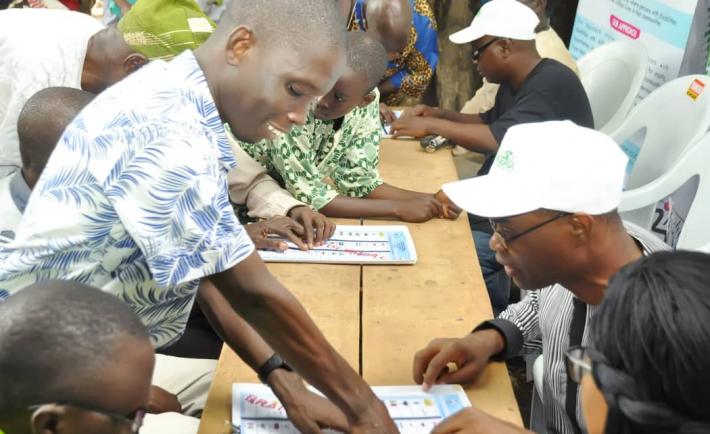
_1_0.jpg)
